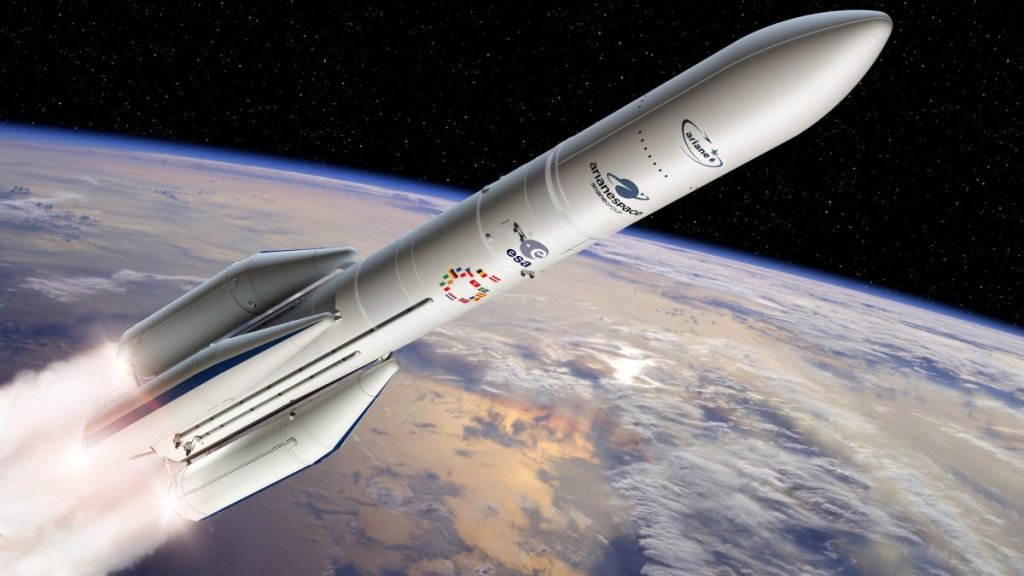Europe will be without independent access to space satellites until at least 2024.
The European Space Agency (ESA) and the CEO of France-based company Arianespace confirmed on Tuesday (Aug. 8) that the inaugural launch of the new Ariane 6 heavy-lift rocket will slip into 2024.
Ariane 6 was initially planned to begin flying in 2020 and ramp up its cadence to replace the older Ariane 5 rocket seamlessly.
Related: When will Ariane 6 fly? Europe’s new heavy-lift rocket battles delays as Ariane 5 era ends
However, Ariane 6 has suffered a series of delays, caused by technical issues, COVID-19 and design changes, according to Reuters, while the Ariane 5 flew its 117th and final mission in early July.
Additionally the failure of the Vega-C rocket in December last year leaves that rocket grounded, meaning Europe currently has no independent access to orbit. The European Commission earlier this year drafted a request for an “ad-hoc security agreement” to allow some European payloads to fly on SpaceX rockets.
When exactly Ariane 6 will fly for the first time is still unclear. A press briefing with the Ariane 6 Launcher Task Force is scheduled for Sep. 4 to provide an update on the launcher, ESA announced on Tuesday.
Arianespace CEO Stéphane Israël tweeted a timeline on Tuesday laying out the next steps for Ariane 6 testing ahead of an inaugural flight in 2024.
Israël said the taskforce will “organize a detailed briefing after the long hot-firing test of 26 September, when we will also be able to provide a more precise launch period for 2024.”
[1/5] Here below please find the updated schedule for #Ariane6 development. With this, @ESA, @ArianeGroup, @Arianespace and @CNES confirm that the inaugural launch is now targeted for 2024. 👉https://t.co/iQxSkDWCOcAugust 8, 2023
The Ariane 6 Launcher Task Force consists of top management of ESA, the French space agency CNES (the launch base prime contractor), the launcher system prime contractor ArianeGroup, and launch service provider Arianespace.
Despite its development woes, Ariane 6 has a number of institutional launches to carry out, and it has been attracting commercial contracts, including 18 launches for Amazon’s Kuiper broadband megaconstellation project.

